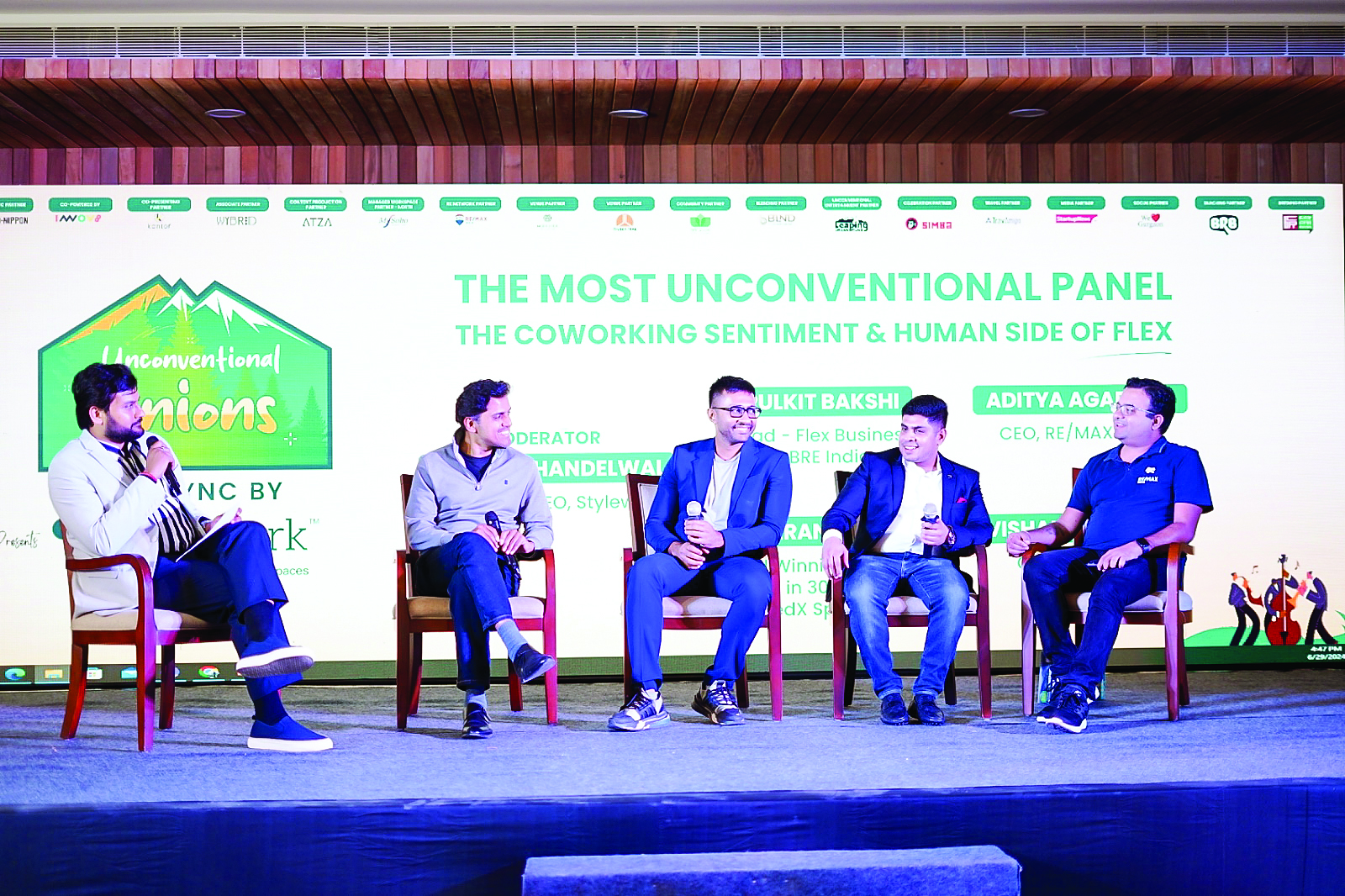Nikhil, a resident of Ghaziabad, has to travel 100 kilometers to reach his workplace in Gurugram. Every day, he changes two metros and two buses, which has caused him asthma, and in extreme weather, it becomes a challenge for him. Especially during the winter when AQI hits hazardous levels.
“Nowadays, it’s raining in Delhi-NCR. So, sometimes I don’t get buses due to waterlogging, and I get late to my workplace, which leads to my salary deduction,” Nikhil.
Industrial production has grown in India by more than 50-fold over the past century. The Central Pollution Board (CPCB) has identified 17 categories of most polluting industries that contribute to the environment regarding suspended particulate matter, gases, and effluents. About 77 per cent of industries contribute to water pollution, 15 per cent to air pollution, and the remaining eight per cent to both air and water pollution.
The Reserve Bank of India (RBI) estimates up to 4.5 percent of India’s GDP could be at risk by 2030 due to the possible loss of labour hours from extreme heat and humidity.
Climate change due to rising temperatures and changing patterns of monsoon rainfall in India could cost the Indian economy 2.8 percent of its GDP and depress the living standards of nearly half of its population by 2050, the RBI’s Department of Economic and Policy Research (DEPR) says in its latest report on Currency and Finance 2022–23.
So, it’s high time we think about a solution that will not only bring accessibility and give everyone equal opportunity but also contribute to sustainability.
Companies like Stylework are a solution that provides work flexibility to work from anywhere and customises workplaces to maximize productivity. In fact, Stylework is on a mission to empower remote working across the globe and enable everyone to work flexibly.
“Flexible workspaces will empower more companies in India to relocate their employees to Tier 2, 3, and 4 cities, mitigating pollution and sustainability issues in Tier 1 cities while fostering economic growth and paradigm shifts in these regions. By adopting flexible work arrangements like remote work or flexible hours, commuting is reduced, resulting in time and money savings for employees and a decrease in carbon emissions and traffic congestion, promoting sustainability.” Sparsh Khandelwal, founder and CEO of Stylework
In the same direction, on Friday and Saturday, Stylework held their landmark event, ‘Unconventional Unions: A Flex-sync’, today at the Moksha Himalaya & Timber Trail Resort, Parwanoo. The convergence brought together the key players from the flex and media entertainment industries to discuss the future of flex workspaces, the hiking changes that are coming forth for the human side of flex, and the technological advancements aiding this sector.
Presented by The Viral Fever, the second day commenced with an interactive keynote led by Pulkit Bakshi, Head of Flex Business at a leading RE services firm. Following Nishant Dobhal, Associate Director of Brand Partnerships at TVF, sharing insights on synergy between flex-work spaces, media, and entertainment. Anil Gupta, Managing Partner of 3 Lines Ventures, and Varkey Patani, DGM A&R, Vertical Head at Saregama India Limited, contributed their expertise to fostering collaboration across industries. Aditya Aggarwal, CEO of RE/MAX India, provided a forward-looking perspective on the real estate aspects of flex workspaces.
During the panel discussion, Sparsh Khandelwal, Founder and CEO of Stylework, said “The future of flex working in India depends on multiple experiments, analysing data, and creating the infrastructure to provide solutions for flex working.” He further added, “Stylework aims to touch and discover the human side of flex by innovating, experimenting, improving on ideas, and learning from the amalgamation of these factors. We want to expand on the integration of human side of flex and change the future of workspaces in India.”
Nishant Dobhal, Associate Director Brand Partnerships at TVF, said “The world of entertainment is changing, and we are focusing on these growing trends. Our aim is to create shows that will not only be relatable to the audience but will also focus on the presence and message of the brands we are creating stories for.”.
“The Indian flexible workspace market has been growing at a steady pace over the past few years in tune with a stable demand from end-users. Many flex operators have been focusing on constantly evolving their products and location networks to further enhance their offerings,” Pulkit Bakshi, Head of Flex Business at a leading RE Services firm, elaborated on his understanding of flexible working.
The occasion was partnered with and sponsored by major affiliates from the real estate industry and the media and entertainment sectors. The official curation partner was Blue Turtle Entertainment, the strategic partner was Indo-Nippon, the event was co-powered by Innov8, the co-presenting partner was Kontor, the associate partner was Wybrid, the managed workspace partner was MySoho, the unconventional entertainment partner was Leaping Dream Films, RE network partner was RE/MAX India, the travel partner was Travamigo, the content production partner was Atza, the celebration partner was Simba, the venue partner was Moksha and Timber Trail, the community partner was Ivy Growth, the media partner was StartupNews, the social partner was WeLoveGurgaon, the snacking partner was BRB, the blending partner was BLND, and the brewing partner was Bloom Coffee Roasters.







